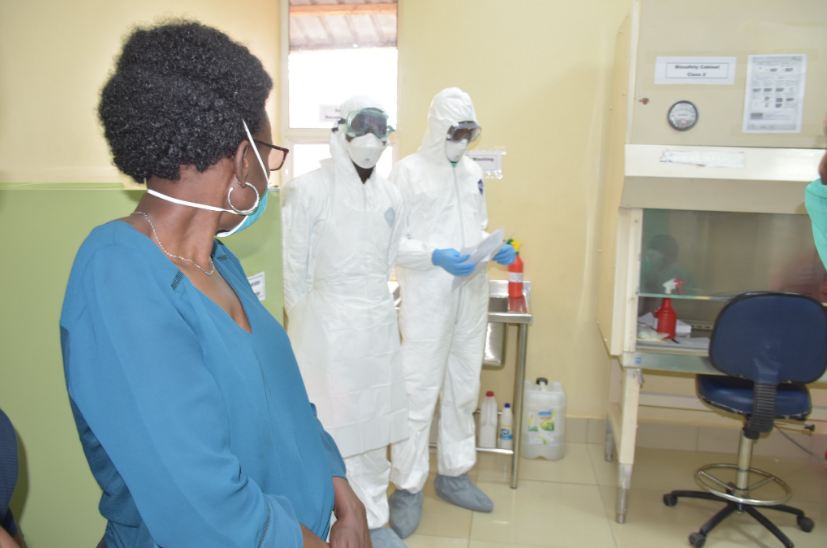
Uganda grapples with refugee crisis amid COVID-19 pandemic
As the world marks World Refugee Day on Saturday, thousands of Congolese are stranded at the Ugandan border seeking to enter the East African country after deadly tribal clashes back home.
Uganda, according to government officials, has agreed to open its border entry point in the north western part of the country for three days starting from Monday to allow in an estimated 5,000 Congolese from the eastern Democratic Republic of Congo (DRC).
Uganda had closed all its border entry points to contain the spread of the novel coronavirus.
“We have received a letter from the Minister for Disaster Preparedness and Refugees under the Office of the Prime Minister to host the refugees in our district,” Andrew Kajoingi, resident district commissioner for Zombo, told Xinhua by telephone on Friday.
“We have just had a meeting with the health ministry officials and those from the United Nations High Commissioner for Refugees (UNHCR) and agreed on the standard operating measures,” Kajoingi said.
He said the ministry will set up COVID-19 testing centers to screen the refugees.
Uganda, according to the UN refugee agency, has some 1.4 million refugees, mostly from neighboring South Sudan, the DRC and Burundi.
Hilary Onek, Uganda’s minister of disaster preparedness and refugees, said in a statement issued here ahead of the World Refugee Day commemoration that the country now faces the uphill task of preventing the spread of COVID-19 in the refugee settlements.
Onek said 44 refugees have so far tested positive for the virus and 872 others have been under quarantine in different refugee settlements across the country.
Onek also said a health plan has been rolled out in the settlements to prevent the spread of the respiratory disease.
The Ugandan government has repurposed isolation centers and quarantine space in all the refugee settlements to manage any suspected COVID-19 cases, Onek said.
“The Ministry of Health, the Office of the Prime Minister and district COVID-19 taskforce teams have initiated mechanisms to detect any likely occurrence of coronavirus among the refugees,” the minister said.
Onek said that efforts are being made to ensure continuous accessible critical services, such as food, health services and other forms of assistance.
“We must remember that everyone counts in the fight against COVID-19, and together, we must work to ensure that every human being is protected and included in the response to this crisis,” said Onek.
“Everyone, regardless of his or her socio-economic status, deserves to be treated with dignity and respect,” the minister added.
Uganda, Onek said, still needs support from the international community to address the plight of refugees and host communities.
Relief agencies in April warned that as the world focuses on the COVID-19 response, financing of the humanitarian need for refugees in Uganda is dwindling.
According to UN figures, at least 80 million U.S. dollars are needed to support over 1.4 million refugees and asylum seekers in the country.
“We are below the worst case scenario. We have already cut their (refugees’) rations by 30 percent. If we continue with the current resource projection, we will cut rations further in July,” said World Food Program Country Representative in Uganda El Khidir Daloum.
According to the agencies, the country’s lockdown to limit the spread of COVID-19 will further reduce the economic opportunities available to refugees, increase refugees’ dependency on assistance and backslide resilience and self-reliance gains achieved over the last two years.






